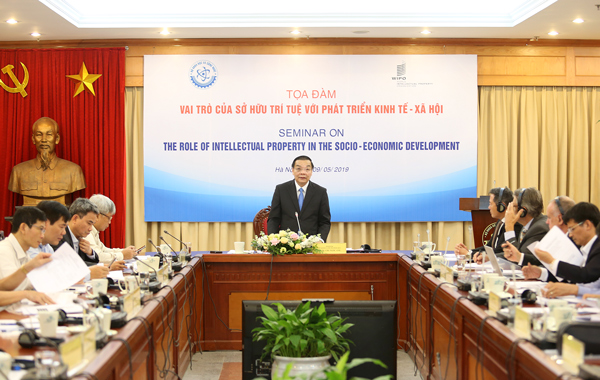Viet Nam had not yet fully exploited its intellectual property (IP) potential for its socio-economic development in the Fourth Industrial Revolution.

Viet Nam had not yet fully exploited its intellectual property (IP) potential for its socio-economic development in the Fourth Industrial Revolution.
Chu Ngoc Anh, Minister of Science and Technology made the statement speaking at a workshop on the role of IP in promoting socio-economic development held by the ministry and the World Intellectual Property Organisation (WIPO) in Ha Noi on Thursday.
Anh said countries worldwide had to rely on scientific and technology development and innovation to achieve economic growth.
“The national innovation system will help bring knowledge, research results into technologies, thereby creating products and goods for society,” he said.
“The intellectual property system and the exclusive protection mechanism for creative achievements and the fight against unfair competition is the driving force for innovation and the creation of innovative products,” he said.
IP contributes to building orientations, targets, missions and measures, serving as a tool for realising development objectives of sectors, localities and the nation.
The minister said they were building Viet Nam’s national IP strategy and would submit it to the Government next month.
Andrew Michael Ong, WIPO Director for Regional Bureau for Asia and the Pacific, said to maintain competitiveness, countries and companies must always be in the forefront of innovation.
Viet Nam needed to improve the capacity and efficiency of establishments, protection and enforcement of IP rights, as well as raising public awareness of the importance of IP rights, he said.
He added the country should encourage innovation in the private sector.
It was also necessary to have a synchronous IP management system. This was what South Korea and China had done over the last five years.
He suggested Viet Nam needed intermediate units connecting businesses and researchers.
Participants stressed the importance of State management agencies at all levels in outlining science and technology-based socio-economic development policies, adding that it was necessary to create links for promoting innovation in research institutes, universities and enterprises. — VNS





